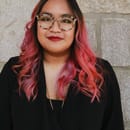With Asian American and Pacific Islander Heritage Month kicking off in May, I thought it would be especially important to share my story and identity as a second generation Asian American living through the COVID-19 pandemic.
I am mixed, so my experience is unique. My mother is Vietnamese, but my father was Laotian. As a child, I struggled not learning either of their cultures and languages, but my peers still saw me as a foreigner who couldn’t speak English (and would therefore talk about me incessantly in negative ways) even though English was the only language I knew. With the rise in sinophobia related to COVID-19 and racist rhetoric that incorrectly blames all Asians for the pandemic, I have had to juggle more than just unlearning my trauma.
In general, Asian Americans face more microaggressions such as racial slurs rather than outright violence, but the rise in anti-AAPi hate crimes has troubled me immensely. I have a distinct memory of my strong mother coming home so shaken from being screamed at in a grocery store that she started sending one of my siblings instead. I myself was standing a little too close to a man in a grocery store and was subsequently yelled at and cursed out by a man much larger than I was. Aside from my partner, no one came to my defense, and that’s when I realized that my place of privilege as a member of the “model minority” would not help me when other marginalized people wanted a chance to not be the victims anymore.
Asian Americans occupy a unique place in our Eurocentric society; we are not as bad as the “others” (namely Black Americans or Hispanic immigrants), so we are privileged in that racism against us does not tend to be explicit or violent. We are considered “better” because of our passivity. Nevermind the fact that there are those alive who were once victims of Japanese internment camps, or the fact that racism is so normalized against Asian Americans that white comedians can use affected accents as the basis for their standup.
Anti-Blackness is also rampant in our communities, and I won’t sugarcoat that. Young Asian Americans have tried to do their part in teaching the older generation that we must stand in solidarity with other marginalized communities in their time of need, such as supporting the Black Lives Matter movement while acknowledging our own privilege, or standing down about our community when we are no longer in the spotlight.
As an Asian American living in Georgia, it was hard to hear about the Atlanta spa shootings. It was harder still when the tragedies kept coming, and I felt like I wasn’t allowed to grieve properly. I was always fielding questions or discussions from other people as the sole Asian person in a lot of my spaces, and I felt the burnout. Then, I remembered my privilege, because other communities don’t have time to grieve, and have been feeling the burnout for much longer.
There are, however, different ways to support the AAPI community. For victims of hate crimes such as the spa shootings, donations to advocacy funds or the families of victims is the best way. Try not to publicize the names of victims with hashtags and graphics, as Asian people tend to be much more private about these matters. We don’t need to worry about being swept under the rug like members of the Black community, even though we also face attempts to justify the crimes against us based on our occupations or our citizenship status. Use Stop Asian Hate rather than Asian Lives Matter, because again, we don’t want to take the spotlight from Black Lives Matter.
And in general, be kind. Stand up for someone who can’t stand up for themselves. Teach love, not hate. We’re all in this together, and blaming people gets us nowhere.



